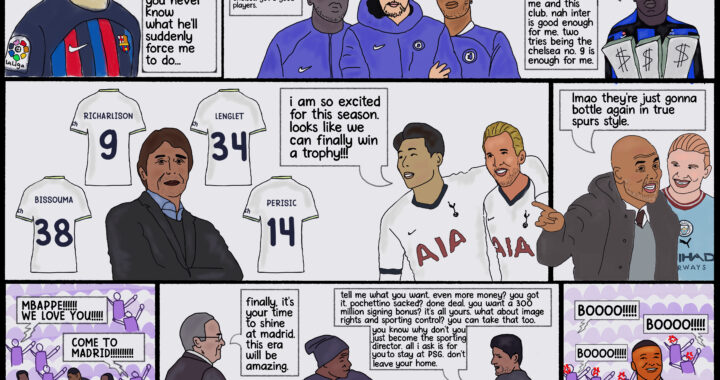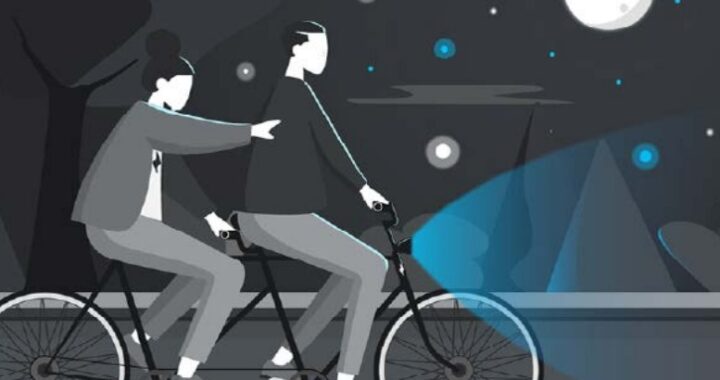The Train Journey

Traveling in Indian trains is a different experience altogether. The people you meet, the experiences that you gain… they are unmatchable. If there is one good thing that the Brits gave India, it is the railway lines.
Pete was but a backpacker who had come to this grand country to satisfy his thirst to explore. Not the country, not the world, but himself. Go to India, if you want to find yourself. He had heard this statement once as a child, a time when he didn’t understand what finding yourself could possibly mean. But he had always been a curious kid. The land of the elephants, the rhinos, the lions and the tigers! He was awed in a way only children could be. It was the little things that he found so fascinating.
He had become a seasoned traveler now. Initially, of course, there was a culture shock. Everyone just keeps staring at me! But then he got used to it and though he wouldn’t admit it, he even started liking it. It made him feel special.
The train journey was from Hyderabad to Mumbai. He shared the sleeper compartment with seven other people – a family of four, and a group of three guys. The little kid of the family was looking at Pete as if he had seen nothing like him before.
“Namaste,” Pete said with a smile. It always worked. It made them realise that he was just one of them- no different. It made him seem more human in front of them.
The kid blushed and dug his face into his mom’s bosom. The mother, embarrassed, pulled him aside, smiled and said, “Say namaste to uncle, Krishna. Come on!.”
“Namaste,” he responded a little meekly.
“Krishna is such a beautiful name! I have been to a lot of Lord Krishna’s temples in Mathura, do you know?”. Pete was trying to get inside the kid’s comfort zone.
On hearing this, Krishna’s eyes lit up. This time his voice was a tad bit more confident. “Wow, I like to go to temples too! Lord Krishna is my favourite god.” The mother looked approvingly at her child and beamed. She looked at Pete and said, “Beta, would you like something to eat? Where are you getting off? Are you going all the way to Mumbai?” She saw him nod and continued, “It is a long journey! Do you have something to eat? Don’t eat the food from the train, you will fall ill! The water they use is worse than tap water. I have some home food with me. Have you had bhindi before? I have roti and bhindi, would you like some? Without waiting for a reply, she whipped out a paper plate and said, “Here I’ll serve you..”
All this while, Pete was just looking at her, smiling. This was not the first time that an Indian family had opened up to him after a seemingly small conversation. He had travelled all over this vast country and everywhere the people and their cultures were truly unique. But the familial affection was the same. He knew there was no point in refusing. “Yes, please. I love bhindi!”
She beamed at him like she had at her child.
In most Indian families, he had noticed that the dads, initially, were on the shy side. The moms had the food and the kids up their sleeves, and they would always get comfortable sooner. But eventually the dads would come through and ask polite questions.
“Where are you from?” came the first question.
“America,” I replied. “But I have been here for some time now. You could say my new home is in Himachal. I have been volunteering at an NGO there. That’s where my ‘Indian base’ is, so to speak.”
“America is good, America is good. I have a brother in USA. He likes the cold.”
Pete knew that he had to come to his rescue at this point. “Where are you from? What is your hometown?” he asked with a smile. Indians loved being asked about their hometown. They wore their differences with pride and kept their roots intact.
“Oh, we are Gujarati! We live in Mumbai and had gone to Hyderabad to visit a relative.” He was happy to see the interest and returned Pete’s smile with an even bigger smile.
Pete was feeling a little sympathetic for the other group of the three guys. He asked them where they were going.
“Mumbai is the city of dreams,” one of them replied. “We are going to work with a friend. He has assured us a place where we can sell sugarcane juice” said the other. “We worked in Hyderabad for a while, but now we are moving to a bigger city, with bigger dreams.”
This made Pete beam. He looked at them and saw himself in them. The aspirations were completely different, yet, so similar. They were trying to find out a niche for themselves. They were trying to find out what they wanted to do. Maybe it was Mumbai where they would find out what was best for them. Maybe it needn’t be the Himalayas’ serenity that gave peace of mind. Maybe it was in between all the people, in between all the cars and bikes, that some people found solace. Maybe this solace was just as genuine as his was.
Pete finished eating a wholesome dinner and climbed up to the upper berth and started reading a book. Even though he held the book in front of himself, he really was thinking about the three guys.
In the middle of the night he heard people screaming loudly. Something had happened and it wasn’t good.
“A kid is hurt. Right in his eye!” someone screamed.
Pete was befuddled. He didn’t know what was happening. He asked the father of the family in his compartment to explain the situation to him.
“I think we are crossing Solapur. It is known that the windows must always be kept closed when going past Solapur. This place is notorious for people throwing stones at trains. Hooligans! The kid must have opened his window.” Just as he finished saying this, he quickly stole a glance at his own kid. Krishna was scared, but with both eyes intact.
“Oh sweet heavens!” Pete replied with shock in his voice. He hadn’t known that. “What do we do now?”.
“I think they will give him the required first aid and then take him to the closest hospital once we reach the next station. It is such a pity. We cannot even stop the train here because dacoits might enter the train. This place is not good for trains.”
Pete felt a little numb. In all his travel, he was bound to meet people who were up to no good. But this case was different. Whoever had done this had gained nothing. It wasn’t even for money. Nothing justified it. It was a plain and simple act of sadism. Morals aside, there was no rational explanation for throwing a stone at a train.
The next day they reached Mumbai and went their separate ways. He hugged the kid and each of the three guys and wished them the best of luck. He saw himself in them, despite the evidently different lifestyles that they had chosen. The previous night had been very eventful. He had seen the parents of the kids get off at Solapur station and take their injured, wailing kid away into the city, in the safety of their arms, in the dead of the night.
He checked into a hostel dorm that he had found out about in Lonely Planet, and slept. It was early morning, but his mind was weary and his head ached.
Pete awoke late in the evening. He hadn’t eaten anything, so he grabbed a vada pav-a local favourite-from a roadside vendor and walked. He was feeling lost. He thought of his journey up till now. It had had its ups and downs, but why was it that yesterday affected him so much?
Mumbai has a brilliant sea front. He walked along the seaside promenade, with wind blowing in the direction opposite his walk. The wind was strong and it made it slightly difficult to walk, but it was soothing and cool at the same time. It left a salty taste on his lips and made his skin sticky.
His mind was as full as the wind was salty. He knew it was the irrationality of what happened yesterday that troubled him, but that explanation did not satisfy him.
It was late evening, yet there were a few beggars trying to gain some money. There was a mother and two toddlers. Pete had read about organised begging in Mumbai and knew better than to give money to the beggars. He politely refused when she approached him and though the lady spent a minute there hoping for some loose change, she eventually decided to move along.
Pete was a person who was very aware and observant of his surroundings. He was aware of the demeanor of the typical Indian family and he was aware of his environment and the contributions that were needed from him. On turning away the lady beggar, he realized that it was his awareness that made it easy for him. It was this awareness that instructed him to do his little bit by refusing the lady money, rather than giving in to sympathy. It was an active, informed action that he took to change the situation that existed.
It was the helplessness, Pete realized. It was the inability to do a single meaningful act, however small, in order to right a wrong. It was what troubled him so much about yesterday. Here was a guy, who turned vegan to prevent animal abuse, stopped using plastic bags and helped a local family in a rural Rajasthan village start a paper bag business. He believed in contributing, in whatever small way, to good. He never thought that the end was close and he believed in second chances.
As he sat on a bench at the promenade, deep in his thoughts, with the strong wind blowing, he closed his eyes and sat in comfort.
Just as he put his faith in the people around him, when he closed his eyes in the night in a strange city far from home and sat in perceived solitude, he put his faith in the universe.
–

 Can you hear the music?
Can you hear the music?  Paintings of IIIT
Paintings of IIIT  Football: The 2022/23 Pre-Season Saga Illustrated
Football: The 2022/23 Pre-Season Saga Illustrated  Beep! Beep! Beep!
Beep! Beep! Beep!  What If Online Was The Norm
What If Online Was The Norm  Not For Long
Not For Long  What does ‘Ee Sala Cup Namdu’ mean for RCB fans?
What does ‘Ee Sala Cup Namdu’ mean for RCB fans?  Felicity: The Price of the Party
Felicity: The Price of the Party  Mama, Put My GPTs in the Ground
Mama, Put My GPTs in the Ground  Have you tried turning the mess off and on again?
Have you tried turning the mess off and on again?